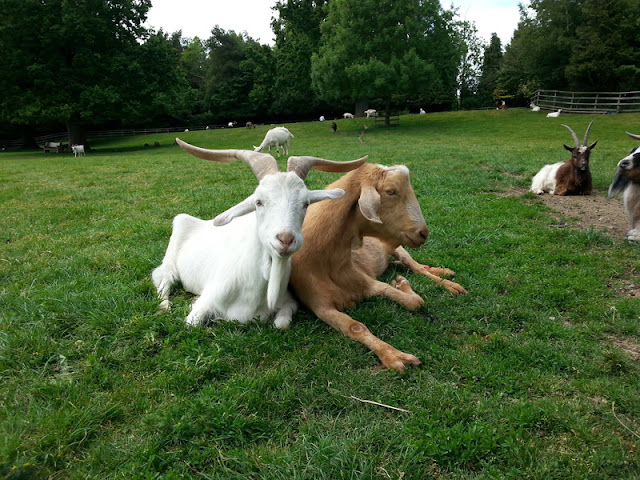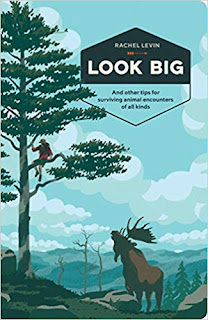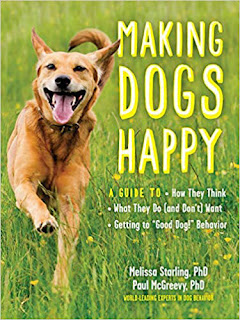Are you looking for some new pet-related accounts to follow in 2019? I’ve updated my list of some of the best people and organizations to follow on Twitter and Facebook if you’re interested in companion animals, science, and the human-animal bond.
These are people or groups who produce great content of their own AND also have a varied feed that shares news, research and interesting snippets from around the web.
I’ve given links to Twitter and Facebook accounts so you can follow however you choose (some are more active on one than the other). The first link is always to Twitter so this is like a giant #FF. The second link is to Facebook if they are on there too, but I admit this list is somewhat biased towards Twitter.
The list is in no particular order, so read through and see who you would like to follow.
And if you love dogs, cats and science, please follow me too (Twitter, Facebook) if you don’t already! You can subscribe to Companion Animal Psychology to make sure you never miss a post.
Of course, there are many talented people in the world, so please add your own suggestions for people or organizations to follow in the comments below.
This page contains affiliate links.
Dr. John Bradshaw – anthrozoologist and best-selling author of The Animals Among Us: How Pets Make Us Human
Dr. Sarah Ellis – co-author of the The Trainable Cat
Dr. Hal Herzog – Professor of Psychology at Western Carolina University and author of Some We Love, Some We Hate, Some We Eat: Why It's So Hard to Think Straight About Animals
Dr. Alexandra Horowitz (Facebook) – canine cognition scientist and best-selling author of Inside of a Dog
Family Dog Project (Facebook) – the canine behaviour research group shares frequent updates on the latest scientific research from their team and others around the globe
Julie Hecht (Dog Spies) – don't miss the fantastic posts on canine science at Julie's Scientific American blog Dog Spies, and stay up to date with all the best dog news via her Twitter feed
Mia Cobb (Do You Believe in dog?) – now a canine science community with guest posts from young scientists on the blog and a feed full of news about canine science and women in STEM
International Cat Care (Facebook) – a great resource for cat lovers, with information and advice for owners and professionals, as well as cute cat pictures too
Dr. Ilana Reisner (Facebook) – this veterinary behaviourist regularly deconstructs dog bite incidents to teach you how to prevent dog bites, and shares interesting and evidence-based items on animal behaviour and training
Dr. Pete Wedderburn (Facebook) – veterinary advice and news, regular Telegraph columnist, author of Pet Subjects: Animal Tales from the Telegraph's Resident Vet
Dr. Mikel Delgado (Feline Minds) – Certified Cat Behaviour Consultant, postdoctoral researcher, and co-author (with Jackson Galaxy) of Total Cat Mojo: The Ultimate Guide to Life with Your Cat
Ingrid Johnson (Fundamentally Feline) – education about cats and gorgeous photos from this Certified Cat Behaviour Consultant
BC SPCA (Facebook) – in amongst the photos of adoptable animals there is plenty of advice on how to care for pets, including videos packed with tips
Maddie’s Fund (Facebook) – lots of tips to help shelter dogs and cats, along with social media and website advice for the people running the shelters #ThankstoMaddie
The Academy for Dog Trainers (Facebook) – for links to top-notch dog training advice from Jean Donaldson’s Academy for Dog Trainers (“the Harvard of dog training”)
Kristi Benson (Facebook) – dog trainer, sled dog expert, and Academy tutor, with a funny and entertaining dog training blog
Pet Professional Guild (Facebook) – advice on dog training and news from the organization for force free pet professionals
IAABC – information on behaviour problems in pets and links to journal articles and mentorships from the International Association of Animal Behaviour Consultants
Dr. Jessica Hekman DVM (Facebook) – the author of The Dog Zombie blog is a vet with a PhD in genomics, a postdoctoral associate at the Karlsson Lab, and a great explainer of canine genetics
Darwin's Ark – a nonprofit (formerly known as Darwin's Dogs) using citizen science to study dog evolution and find new insights into dog and human psychiatric diseases
Dr. Brian Hare (Facebook) – information on animal minds and evolution, especially dogs and bonobos, from the associate professor of Evolutionary Anthropology at Duke, co-author of The Genius of Dogs
Dr. Gregory Berns – scientist who uses fMRI to study dogs’ brains, author of How Dogs Love Us
Pam Johnson-Bennett (Facebook) – cat news and tips from the best-selling author of Think Like a Cat: How to Raise a Well-Adjusted Cat--Not a Sour Puss
Susan Little DVM – this veterinarian specializes in feline medicine and has a twitter feed packed with intriguing facts about cats
Dr. Melanie Rock – information about non-human animals and health, including dog parks and dog bite prevention, from this Associate Professor at the University of Calgary
Martha Smith-Blackmore DVM – this compassionate expert in veterinary forensics is a Faculty Fellow at Tufts Cummings School of Veterinary Medicine and shares information on animal cruelty and animal welfare
Dr. Malcolm Campbell – biologist and Vice President (Research) at the University of Guelph, follow Malcolm for science tweets and #SixIncredibleThingsBeforeBreakfast (currently on a break from Twitter, but be sure to follow when he's back)
The Centre for Shelter Dogs (Facebook) – part of the Cummings Veterinary School at Tufts University and brings you lots of resources to help shelter dogs
Anthrozoology Research Group (Facebook) – shares links to interesting anthrozoological research by themselves and from around the globe
Dr. Sam Gaines – head of the Companion Animal dept at the RSPCA, with lots of tips to improve animal welfare and #EndBSL
 |
| Photo: Photo-SD/Shutterstock |
Dr. Rachel Casey – veterinary behaviourist and animal welfare scientist at Dogs Trust, so look out for lots of great info on canine behaviour
UCD Vet Behaviour Services – recent research and behaviour information from the Behaviour Service at UCDavis
Dr. Chris Blazina – psychologist with a special interest in understanding men and their canine best friends, shares interesting links about human animal interaction
Dr. Alan McElligott – tweets about his research and about animal behaviour, welfare and cognition generally; look out for the entertaining goat stories and photos of Jack the Lab
Dr. Marc Bekoff – animal emotions, moral behaviour, and conservation topics from the author of The Emotional Lives of Animals
ASA Animals Society (Facebook) – the American Sociological Association looks at the complex relationships between humans and animals
Dr. Marc Abraham (Facebook) – animal welfare campaigner and veterinarian of the year, founder of Pupaid (Facebook), a UK group campaigning against puppy farms, with regular games of #GuessTheBreed
Dr. Sophia Yin – the account of the company set up by the late Dr. Sophia Yin, CattleDog Publishing, shares her writings and educational links on animal behaviour.
Dr Marty Becker DVM (Facebook) veterinary information and stories about the human-animal bond from America’s veterinarian, author of many books and co-author of From Fearful to Fear Free
Dr. Emily Blackwell – clinical animal behaviourist, scientist at the University of Bristol, and TV expert, shares animal welfare and animal behaviour science and tips.
Dr. Jenny Stavisky – shelter vet and epidemiologist as well as uplifting tweets about how Vets in the Community help the most vulnerable pets
Dr. Sebastiaan Bol – researcher and found of Cowboy Cat Ranch, look out for all the cute kitty photos
Dr. Naomi Harvey – zoologist, ethologist and research fellow at the Itchy Dog Project
Dr. Kat Littlewood (Facebook) – small animal veterinarian and PhD student especially interested in cats and animal welfare, with an interesting blog too
Dr. Sandra McCune – scientific leader in Human Animal Interaction at WALTHAM
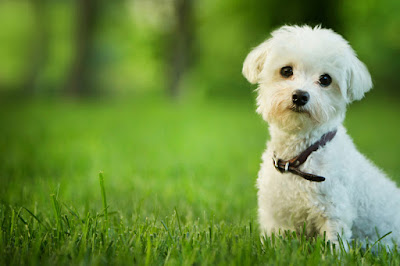 |
| Photo: Mary Rice/Shutterstock |
Kim Monteith - manager of animal welfare at the BC SPCA and volunteer at Charlie’s Food Bank helping the pets of the homeless in Vancouver
Dr Kate Mornement (Facebook) – PhD-qualified behaviourist at Pets Behaving Badly – Solutions with Dr Kate with an interesting blog on dogs, cats and parrots
Dr. Carri Westgarth – research fellow in human animal interaction and dog trainer, specializing in research on dog walking and dog bites
Dr. Zoe Belshaw – evidence-based approaches to veterinary science from this veterinary specialist at the University of Nottingham
Dr. Emma Milne (Facebook) – the vet behind vets against brachycephalism, author and animal welfare enthusiast
Dr. Patrizia Piotti – postdoctoral research on dog behaviour and cognition
Dr. Taryn M Graham – Graham recently completed her PhD and is interested in how dogs can help promote health in cities, and founder of PAWSitive Leadership which takes certified dogs into classrooms to teach children.
Dr. Christy Hoffman (Facebook) – regular updates on anthrozoology from the Canisius Canine research team
Dr. Caroline Spence – academic interested in animal welfare and sentience and how we understand animal minds
Dr. Debra Horwitz (Facebook) – veterinary behaviourist and author of Blackwell's Five-Minute Veterinary Consult Clinical Companion: Canine and Feline Behavior
Cats Protection (Facebook) – cat videos and advice on how to care for your cat as well as lots of cute pics from this large UK charity
Dr. Tamara Montrose – animal welfare and behaviour scientist who researches sensory environmental enrichment and how to increase shelter adoptions
Dr. Anne Fawcett – small animal veterinarian with a special interest in ethics, co-author of Veterinary Ethics: Navigating Tough Cases
Dr. Vanessa Rohlf (Facebook) – compassion fatigue consultant shares information on coping with animal bereavement and resiliency for people who work with animals
Dr. Nik Taylor – research and news on the sociology of human-animal interaction
 |
| Photo: matabum/Shutterstock |
Dr. Christian Nawroth – postdoctoral researcher in animal cognition including goats and pigs (don't miss his post for Companion Animal Psychology on why goats are not the new dogs!)
Kathy Sdao - certified applied animal behaviourist and dog trainer and author of Plenty in Life Is Free
Malena de Martini (Facebook) – training and resources on separation anxiety from the author of Treating Separation Anxiety in Dogs
Laura Monaco Torelli (Facebook) – dog trainer and Karen Pryor Academy faculty member, with a feed full of interesting dog training and animal behaviour info
James Oxley – independent researcher on dog bites and rabbits who shares HAI information and conferences
Clare Ellis - PhD candidate interested in animal welfare and the reasons for relinquishment of rabbits
Janetta Harvey (Facebook) – tireless campaigner against puppy farms and sharer of information on dogs in general and Schnauzers in particular.
Joanna Berger – animal behaviourist and trainer who shares lots of information on behaviour and welfare for dogs, cats and birds
Jemima Harrison – campaigner for better health and welfare for purebred dogs and the director of Pedigree Dogs Exposed
Catherine Amiot – social psychologist who studies self and identity and human-animal relations
Sharklab – Dr Khristof Dhont’s group at the University of Kent studies the psychology of intergroup relations and human-animal relations, with insights not just into animals but also into racism, sexism, and how to build compassion.
Hunter College ABC – animal science from the Hunter College Psychology department
Sarah-Elizabeth Byosiere – studies social play behaviour in canids and dog perception and behaviour at the Thinking Dog Centre at Hunter College
OVC Companion Animal Behavior and Welfare Lab (Facebook) – The team from Ontario Veterinary College has an active Facebook feed with details of their own research and articles on how to care for all kinds of pets
American College of Veterinary Behaviourists (Facebook) – Veterinary behaviourists are specially trained veterinarians who can help with your pet’s behaviour problems and even prescribe psychotropic medication if needed. Follow the ACVB for up-to-date information that will help you understand your pet better; they are also the authors of Decoding Your Dog
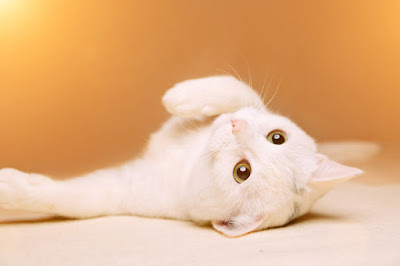 |
| Photo: Inha Makeyeva/Shutterstock |
Debbie Jacobs (Facebook) – if you have a fearful dog, don't miss the essential tips from Debbie Jacobs, author of A Guide to Living with & Training a Fearful Dog
Dr. Wailani Sung – Veterinary behaviourist and co-author (with Dr. Marty Becker and others) of From Fearful to Fear Free
Insightful Animals (Facebook) – the Twitter feed of veterinary behaviourist Dr. Kelly Ballantyne shares insights into our companion animals and their behaviour
Marilyn Krieger (Facebook) – Cat Coach and author of Naughty No More
Lucia Lazarowska – postdoc canine scientist at Auburn studying canine olfactory detection who shares her research and general canine science articles and info
Dr. Clive Wynne – Director of the Canine Science Collaboratory and author who tweets on canine science and all things dog
Dr. Susan Hazel – with a background in veterinary science, animal welfare, and animal behaviour, Hazel’s research includes dogs, sheep and chickens
Molly Crossman – Clinical psychology grad student who looks at the benefits of interactions with animals for human stress and mental health
Dr. Páraic Ó Súilleabháin (Facebook) – This psychologist studies animal behaviour and personality, including breed specific legislation, his feed has stories about many species of animal
Bronwyn Orr – This vet and animal welfare PhD candidate writes for The Conversation and has an interesting feed about companion animals and wildlife
Melissa McCue McGrath – The author of Considerations for the City Dog
O’HaireLab – Dr. Maggie O’Haire is an associate professor of human-animal interaction who researches how service dogs can help veterans with PTSD
Victoria Stilwell (Facebook) – dog training advice and rescue stories from the TV star and author of It's Me or the Dog
Thomas McNamee – links to science stories and cat videos from the author of The Inner Life of Cats: The Science and Secrets of Our Mysterious Feline Companions
Mikkel Becker (Facebook) – follow on Facebook for expert advice from this professional dog trainer who is also co-author of From Fearful to Fear Free
Nick Honor K9 and Puppy Stars (Facebook) – cute photos of pets mingle with news and advice on dog training
Canine Correspondence – Laura Spackman’s Facebook hub sharing information from across the web on our canine best friends, with a mix of helpful information and amusing memes
Family Paws (Facebook) – Tips on how to properly supervise babies and children with dogs, and how to use baby gates, pens and the layout of your house to set your dog and child up for success
Dewdney Animal Hospital (Facebook) – veterinarian Dr. Adrian Walton has a feed that is both local (for his clients) and broad in themes that resonate for all pet owners, like puppy mills and his pink tutus for pit bulls campaign
Now it's your turn. Who would you add to the list? Add a comment below to share your favourite people to follow.
As an Amazon Associate I earn from qualifying purchases. As an Etsy affiliate, I earn from qualifying Etsy purchases.


